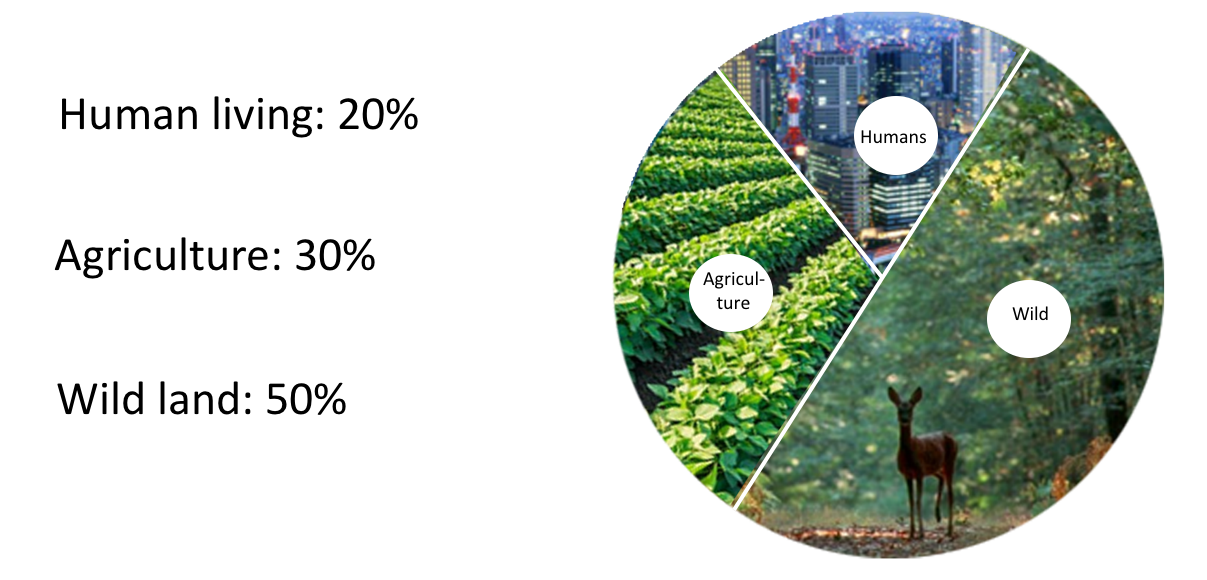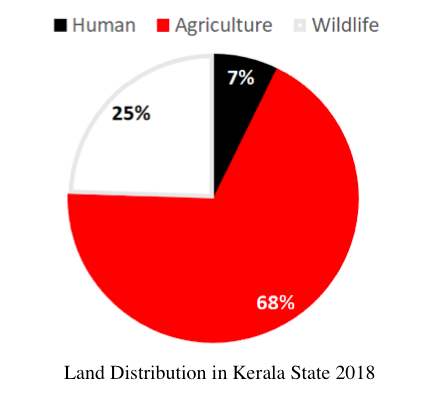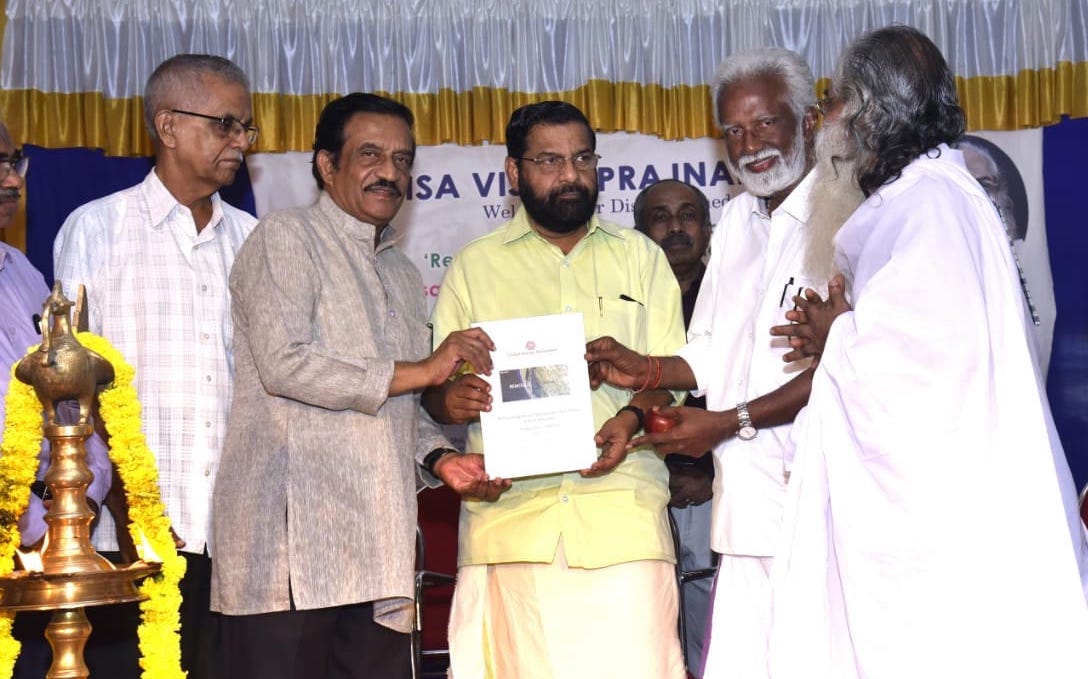
After the floods in Kerala in 2018, the Global Energy Parliament formed an international consortium of scientists and researchers to study the last 100 years of development and land usage in Kerala and apply GEP’s innovative concepts of energy balance. The outcome was a Sustainable State Model.
Although the first Model is specific to Kerala, it is replicable anywhere in the world.
The Model was presented to the Govt. of Kerala on 29th of March, 2019. Tourism Minister Kadakampally Surendran praised it and said, "Once the Remoulding Kerala Sustainable State Model is implemented, Kerala can be positioned as a global leader for sustainable living." He gave all his support to the “novel concept.”
“The entire Model is based on the theory of energy balance described in Swami Isa’s I-Theory,” said Dr. Christophe Dumas, one of the Project Coordinators and Head of Solar-Thermal Dept. at the Commission for Alternative and Atomic Energy, Govt. of France. “The innovation of the I-Theory is that energy must be balanced in terms of quantity as well as quality,” he stated. Thus, the Model provides for long-term, holistic and sustainable development of infrastructure and use of natural resources.
Overall, a 50-30-20 percent distribution of environmental compounds should be maintained in an environmental system like an entire State (Fig 1). 50% should be devoted to natural land and forests, 30% for agriculture, and 20% for human living and infrastructure.

Fig 1. Ideal Distribution of Land

Fig. 2. Present Distribution of Land in Kerala State
The researchers found that in Kerala, Agriculture occupies 68% of the State’s land, and is projected to increase (Fig. 2). They suggested measures to be taken for redistributing the land that will not negatively, but rather positively, impact agriculture in the state, and also make the human living areas less harmful.
They also recommended that forest cover along the coastline should be increased and buildings should gradually shift away from the coastline. More fruit-bearing trees should be planted in urban areas and along roads and highways. Also, the areas for Government, education, housing, and industries should be consolidated in the State.
FIRST STEPS TAKEN
The first step of implementing the Sustainable State Model is to plant fruit-bearing trees in the tourist destinations, and along roads and railways. The fruits would be made freely available to tourists and the common people. Two Tourist Villages have been suggested by the Minister as model sites: Veli and Akkulam.
Project Coordinator Dr. Marcus Guderle, researcher and Chairman of GEP-Germany, is mapping out the species of fruit trees to be planted onsite. “It would be heartening to see all Keralites to help plant trees. We encourage other organizations and volunteers to join hands with us,” he said.
Do you want to Volunteer / Adopt a Tree / Other Assistance / Learn More?
Contact our team at research(at)global-energy-parliament.net.
July 16, 2019: A proposal for Coastal Sustainability measures was presented to the Government at the International Conference on Education for Total Consciousness, by Dr. Christophe Dumas. This proposal concerns scientific construction proposals for greenwalls along the coastline, to protect from sea erosion, tsunami and storms.
March 29, 2019: The State Model, including the Proposal for Phase I, was presented to the Minister of Tourism, Government of Kerala, at a public function.
March 11, 2019: Phase 1 of the Project Proposal was discussed with the Kerala State Minister of Tourism. He suggested that GEP starts it in one Panchayat, and offered his support.
March 9, 2019: First draft of the Model was completed and presented by the international researchers to team of scientists and economists in Kerala. A plan for Phase 1 of its implementation was discussed and drafted up.
February 25, 2019: Data analysis was completed.
January 20, 2019: The team has successfully completed the first work package of data acquisition and literature review. The gathered data contains many decades of location, area, and census data from over 25 sectors (including housing, agriculture, industries, water supply, population, power, telecommunication and urban development) in Kerala State.
The submission of the first draft of the Master Plan is planned to be submitted to the Government of Kerala soon.
In the current phase, the data is being analysed by the scientists and will become the building block of the Sustainable State Master Plan for Kerala.
November 15, 2018: Interns from Mumbai, Delhi and Trivandrum have been hired for the project selected for their expertise in environment and statistics. Welcome!
October 1, 2018: An International Consortium of scientists and researchers was formed consisting of researchers and experts in hydrology, GIS mapping, engineering and sustainability from Germany, France, Denmark and India.
